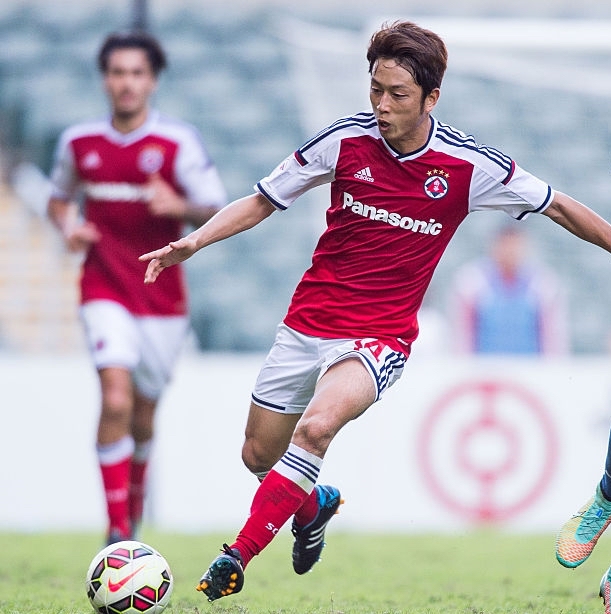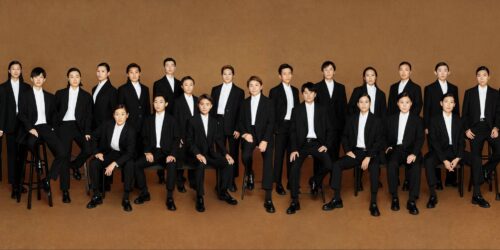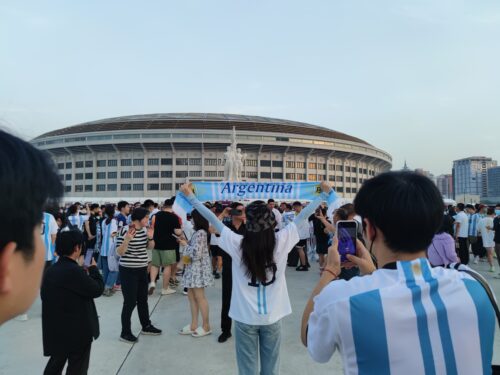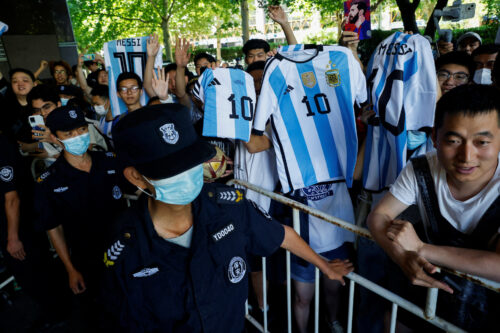China’s stringent nationality requirements is hurting its national teams


The China Sports Column is a The China Project weekly feature in which China Sports Insider Mark Dreyer looks at the week that was in the China sports world.
Headlines in local media this week proclaimed that Japanese football player Yuto Nakamura (中村祐人 zhōngcūn yòurén) had officially “gained Chinese citizenship,” something that at first glance certainly raised an eyebrow.
For a start, given the history between China and Japan, it’s pretty rare for a Japanese national to switch sides to a perennial rival.
China is known to be looking at its nationality law with particular regard to athletes — the Chinese Football Association (CFA), for example, has previously stated on its website that it was investigating the possibility of naturalizing players under FIFA’s widely-adopted rules, while China’s ice hockey squad contains several foreign-born players being courted for the 2022 Olympics — but so far, no progress has been made in soccer, hockey, or elsewhere.
So could it be that Nakamura’s transfer marks an official start to long-rumored changes? As usual, the answer isn’t quite that simple.
The “Chinese citizenship” in this case refers to Hong Kong, where Nakamura first played professionally in 2009, and where he’s been based continuously since 2010.
FIFA rules state — with some exceptions — that a player can switch nations after settling in a country for at least five years, by which time players have usually already switched their passport and are simply waiting for FIFA’s stamp of approval.
But in this case, that wasn’t the issue: Hong Kong requires seven years of residence — two more than FIFA — before the territory will issue an ID card, and Nakamura would likely have also needed special lobbying from the Hong Kong FA for the request to go through.
But go through it did, and Nakamura made his debut on Tuesday as Hong drew 1-1 tie in Indonesia. At 31, he could still perform for a number of years, although given that his only professional appearances outside of Hong Kong consist of three games for a Portuguese second-division club, he’s hardly likely to transform Hong Kong’s fortunes on the pitch.
But while Nakamura’s move has only minimally altered the landscape, a couple of issues in the future may yet do so.
Hong Kong native Tsun Dai is currently contracted to Oxford United in England’s League One and has featured regularly in Hong Kong youth squads while attempting to carve out a professional career in the UK.
But earlier this month, after failing to make the final national team squad despite his first senior call-up last month, he opted instead to train with China’s U21 squad in Europe.
It’s still unclear whether he officially plans to switch teams from Hong Kong to the mainland, or if he simply chose to train under Dutch legend Guus Hiddink a short hop away in Amsterdam, but his decision will still be watched closely, irrespective of whether he can cut it at the highest levels.
“Chinese nationality” is an increasingly broad term these days, with Beijing keen to press claims on pretty much anyone who has ancestral links to the motherland. But locals in Hong Kong and Macau also possess the more narrowly-defined “Chinese citizenship,” which collectively covers three sets of ID cards.
What’s interesting, however, is that under FIFA Article 16, players eligible to represent more than one association (i.e. national team) — which, under Chinese citizenship rules, Chinese, Macanese, and Hong Kongers can do so — only need to wait for two years of residency before they can switch.
But here’s where it gets messy.
In effect, then, these players hold triple citizenship under FIFA rules, but China’s own nationality law — among the most stringent in the world — expressly forbids dual nationality.
So while the situation makes it easier for players to move around Greater China, that same situation makes it that much harder for China’s ice hockey team, for example, to sign up ethnically Chinese Canadians and Americans for their 2022 Olympic squad.
Most of those who have been recruited for the KHL’s Kunlun Red Star, with one eye on turning out for Team China in 2022, have not yet declared they would be prepared to trade in their current passport for a Chinese one. But the talk from officials around the team is that they all expect some sort of resolution before too long.
Options that spring to mind could include a temporary swap of passports, an Olympic exception for dual nationality, or even widespread reform of the entire nationality law, allowing either dual citizenship or perhaps a true path to naturalization.
With China now automatically qualified for the Olympic hockey tournament and its homegrown players not developing at the desired rate, the pressure is on to find a solution to bolster the team or else lose face on the world stage.
But expect China — someway, somehow — to find a way around the problem.
~
If your head now hurts from trying to comprehend the situation, maybe you need to chill out — something that Chinese goalkeeper Zeng Cheng 曾诚 appeared to advocate this week in a game against Syria.
Sports clothing technology is a rapidly expanding industry, as professional athletes (or even just enthusiastic amateurs) seek to find an extra edge in their quest for maximum performance.
HUF’s “Plantlife” socks claim to provide the perfect balance between comfort and grip, although on closer inspection, they’re really just promoting weed culture.
Perhaps Zeng’s agent had told him he has a growing fan club in Canada, where marijuana was legalized this week, but he’s now facing a lengthy ban after visibly wearing HUF’s distinctive logo during the game, which — naturally — went viral soon afterwards.
There’s little point speculating on what sort of punishment our friends at the CFA will dish out, but given the fact that lesser crimes have received a 12-month ban, not even jail time would be surprising.
Zeng has five CSL titles with league favorites Guangzhou Evergrande, but don’t expect that to carry any weight with the CFA.
In fact, his best bet now might be to petition for Canadian citizenship. He couldn’t play for Canada, having already represented China more than 40 times at senior level, but perhaps he could get on the coaching team for 2026, when Canada will qualify for the World Cup as one of three hosts.
Given the way Chinese football has been regressing in recent months, that looks like his best chance of ever going to a World Cup.
Correction: An earlier version of this story incorrectly stated Tsun Dai declined a call-up from the national team, when in fact he failed to make the final squad. This post has been edited to reflect this.
The China Sports Column runs every Friday on The China Project. Follow Mark Dreyer @DreyerChina.






